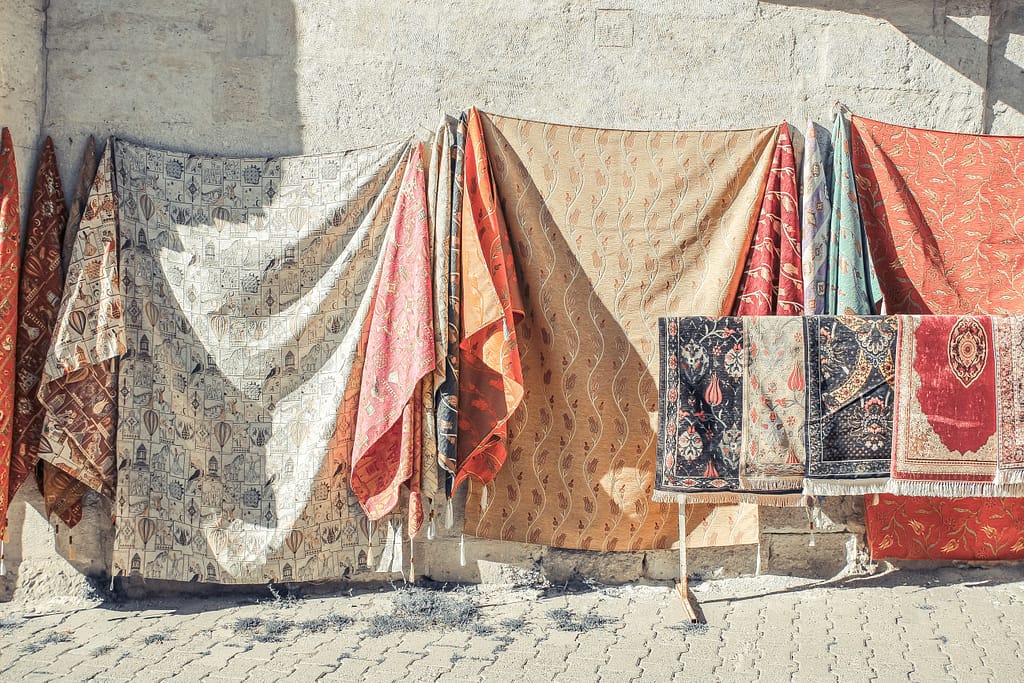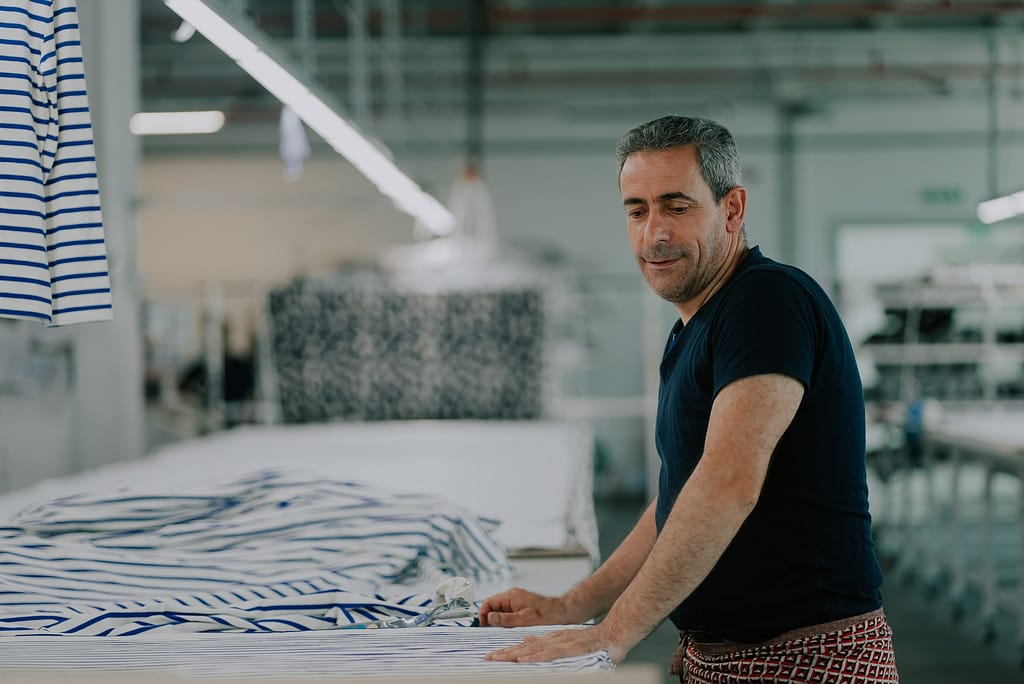Its garment industry is now the sixth largest exporter in the world, and its clothing exports are more than twice as large as those of any other European country. As a result, Turkey has become an important source of employment for many people, and the country’s burgeoning textile industry is having a significant impact on the economy. We will look into why Turkey has emerged as a major global apparel producer, and the implications for both the Turkish economy and the wider international apparel market.
A brief history of Turkey's textile and clothing industry
Turkey has a long and rich history in the textile and clothing industry. The country has been involved in textile production for centuries, with early evidence of cotton cultivation dating back to the Byzantine Empire. However, it was in the 19th century that Turkey’s textile industry began to flourish. During this time, the Ottoman Empire embraced modernisation and industrialisation, leading to the establishment of numerous textile mills and factories.
In the early 20th century, Turkey gained independence and underwent a period of rapid industrialisation. This included the expansion of the textile and clothing sector, which became a major contributor to the country’s economy. Turkey’s textile and clothing industry continued to grow throughout the 20th century, driven by advancements in technology and increased export opportunities.
Today, Turkey is known for its high-quality textiles and innovative fashion designs. The country has positioned itself as a key player in the global apparel market, offering competitive prices and a wide range of products. The combination of Turkey’s rich textile heritage, skilled workforce, and commitment to quality has contributed to its success as a major global apparel producer.

Turkey's current position as a leading apparel manufacturer
Turkey’s current position as a leading apparel manufacturer is undeniable. Over the years, the country has made significant strides in the global market and is now considered a powerhouse in the industry. Turkey’s apparel exports have been on a steady rise, with the sector now being the sixth largest exporter in the world. What sets Turkey apart is its ability to produce high-quality textiles and innovative fashion designs at competitive prices. The country’s rich textile heritage, combined with a skilled workforce and a commitment to quality, has played a significant role in its success. Turkey has positioned itself as a key player in the global apparel market, offering a wide range of products that cater to different market segments. With its growing influence, Turkey’s apparel industry shows no signs of slowing down, and its future prospects are promising.
Factors contributing to Turkey's success in the clothing industry

One of the key factors contributing to Turkey’s success in the clothing industry is its skilled workforce. The country has a long history in textile production, and this expertise has been passed down through generations. Turkish textile workers are highly skilled, with a deep understanding of fabrics, design, and production techniques. Their craftsmanship and attention to detail are reflected in the high-quality garments they produce.
Another factor is Turkey’s strategic location. Situated at the crossroads of Europe, Asia, and the Middle East, Turkey enjoys close proximity to major markets. This allows for easier transportation and shorter lead times, making it more cost-effective for international brands to manufacture in Turkey.
Furthermore, the Turkish government has implemented various incentives and policies to support the growth of the apparel industry. These include tax benefits, export subsidies, and infrastructure development. These initiatives have attracted both domestic and foreign investment, fuelling the industry’s expansion.
Additionally, Turkey’s ability to adapt to changing market demands has been instrumental in its success. The country has a diverse range of textile and clothing products, catering to various market segments. Turkish manufacturers are known for their flexibility, quick response times, and ability to produce small batch orders, allowing them to meet the fast-paced nature of the fashion industry.
In summary, Turkey’s success in the clothing industry can be attributed to its skilled workforce, strategic location, government support, and adaptability to market demands. These factors have helped Turkey become a major global apparel producer and solidify its position in the international market.
Turkey's competitive advantages over other manufacturing countries
Turkey has several competitive advantages over other manufacturing countries in the apparel industry. Firstly, its skilled workforce sets it apart. Turkish textile workers have a deep understanding of fabrics, design, and production techniques, resulting in high-quality garments. This craftsmanship and attention to detail give Turkey an edge in terms of the quality of its clothing.
Secondly, Turkey’s strategic location plays a crucial role. Situated at the crossroads of Europe, Asia, and the Middle East, Turkey enjoys close proximity to major markets. This allows for easier transportation and shorter lead times, making it more cost-effective for international brands to manufacture in Turkey.
Thirdly, the Turkish government’s support for the apparel industry through various incentives and policies has attracted both domestic and foreign investment. These measures, including tax benefits, export subsidies, and infrastructure development, have helped fuel the industry’s expansion and strengthen Turkey’s competitive position.
Overall, Turkey’s skilled workforce, strategic location, and government support give it a competitive advantage over other manufacturing countries in the global apparel market.
Future prospects for Turkey's textile and clothing industry
Looking ahead, the future prospects for Turkey’s textile and clothing industry are incredibly promising. Turkey has established itself as a major global apparel producer, and this trajectory is expected to continue in the coming years.
One key factor contributing to Turkey’s future success is its ability to adapt and innovate. Turkish manufacturers have a track record of responding quickly to changing market demands, which will be crucial in the ever-evolving fashion industry. This flexibility, combined with Turkey’s skilled workforce and commitment to quality, will enable the country to maintain its competitive edge.
Additionally, Turkey’s strategic location provides a unique advantage for the industry. Its proximity to major markets in Europe, Asia, and the Middle East allows for easier transportation and shorter lead times, making it an attractive choice for international brands.
Furthermore, Turkey’s government has demonstrated a commitment to supporting the apparel industry through various incentives and policies. This ongoing support will help fuel further growth and ensure the industry remains a vital part of Turkey’s economy.
Overall, with its skilled workforce, strategic location, and government support, the future of Turkey’s textile and clothing industry looks bright. As the global apparel market continues to expand, Turkey is well-positioned to capitalise on new opportunities and maintain its position as a leading global apparel producer.
Challenges faced by Turkey's apparel industry
The Turkish apparel industry, although thriving, is not without its challenges. One of the main challenges faced by Turkey’s apparel industry is increased competition from other countries. As more countries enter the global market, Turkey is facing greater competition in terms of price, quality, and speed of production. This puts pressure on Turkish manufacturers to constantly innovate and find ways to differentiate themselves.
Another challenge is the rising cost of raw materials. The prices of fabrics and other materials have been increasing, making it more expensive for Turkish manufacturers to produce clothing. This puts a strain on profit margins and forces manufacturers to find cost-saving measures without compromising on quality.
Additionally, Turkey’s apparel industry also faces challenges related to sustainability and ethical production. With increasing consumer demand for sustainable and ethically produced clothing, Turkish manufacturers must adopt more environmentally friendly practices and ensure fair treatment of workers.
Overall, while Turkey’s apparel industry has experienced remarkable growth, it must address these challenges to maintain its position as a leading global apparel producer.